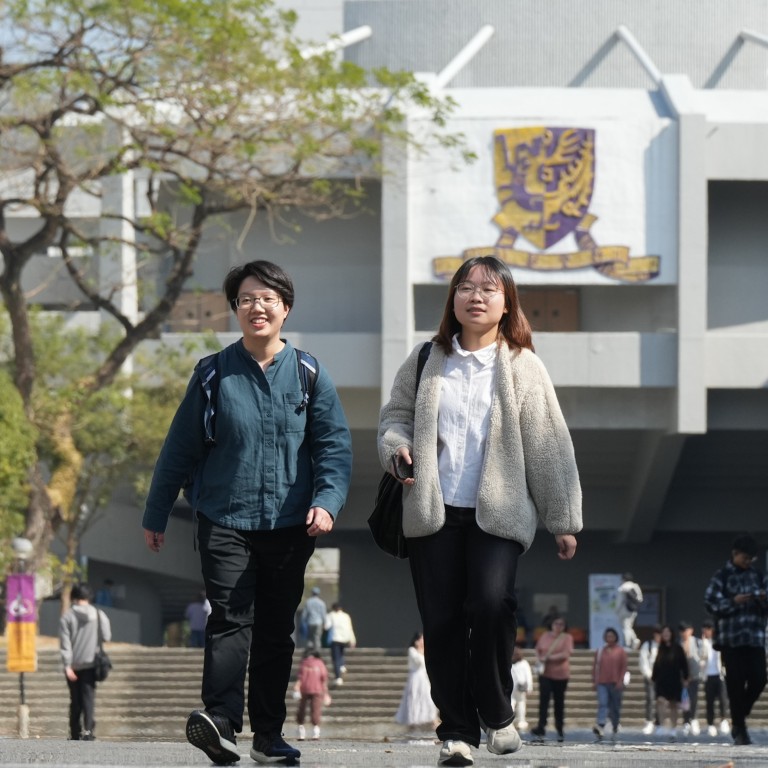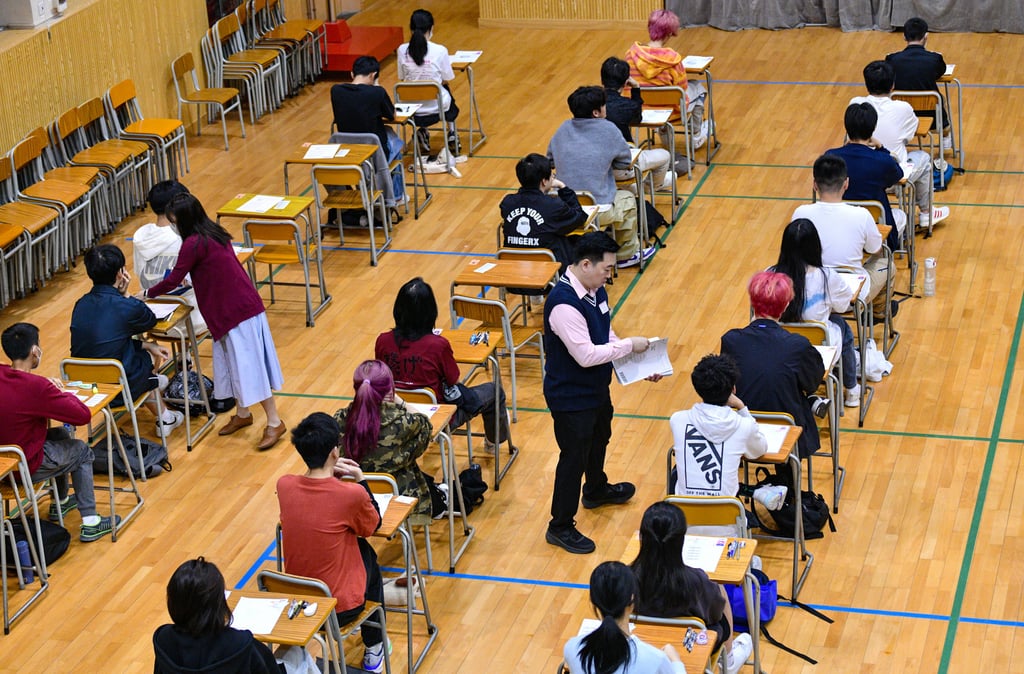
Fewer Hong Kong students secure university spots, top 3 choices through admissions system
- An education consultant attributes decline to more applicants attaining the minimum entry requirements
Fewer Hong Kong students have won a university place in the city or received an offer from their top three choices through the central allocation system this year.
Ng Po-shing, a consultant at student guidance centre Hok Yau Club, said the increase in those hitting the minimum requirement included a higher success rate in citizenship and social development, a core subject in the Diploma of Secondary Education exams.
“When more students attain the minimum requirement, it also means more people will compete for university places,” he said.
Among the 39,634 applicants who joined the Joint University Programmes Admissions System (JUPAS), 15,776, or 39.8 per cent, were offered a place, figures showed.
This includes undergraduate courses offered by the eight public universities, self-financed bachelor programmes at Hong Kong Metropolitan University or a Higher Diploma programme at the Education University of Hong Kong.
There were 16,149 students, 40.4 per cent, of 39,948 JUPAS applicants offered a place last year.
Among the successful applicants this year, 13,797 got a spot in their top three choices, 688 fewer than last year.
There were 18,392 students who achieved the minimum entrance requirement this year, up from 16,914 in 2023.
That means about 2,600 youngsters who reached the minimum requirement were unable to secure a place in the main round of JUPAS.
The Chinese University of Hong Kong (CUHK) announced that five out of eight top scorers in this year’s exams who aspired to be doctors were admitted to its medical school.
“According to the information, nearly half of the top 100 students who sat for Diploma of Secondary Education [exams] picked CUHK’s medical programme,” the university’s medical school said in a press release.

The University of Hong Kong (HKU) said it admitted four top scorers and that three would study medicine and one international business and global management.
The city’s oldest university also admitted eight top athletes under its direct admissions scheme for top athlete applicants who are also academic high-fliers, including Paris Olympics swimmer Cindy Cheung Sum-yuet.
The 17-year-old will study for a degree in social sciences.
Track athlete Chloe Pak Hoi-man, who holds the Hong Kong junior record for the 100m hurdles, will join the university’s medicine faculty.
Pak is the first applicant to be admitted to the medical school through the scheme.
The Diocesan Girls’ School former pupil said on Wednesday that she had been inspired by doctors’ passion and care for their patients, despite heavy schedules.
“As an athlete, we face minor and major injuries, from sprains to pulling our ligaments, so I have always been interested in sports science and orthopaedics,” Pak added.
She said she would ensure she balanced her academic workload with her sporting career while at university.
Pak added she was prepared to give up personal time so she could devote enough time to her studies.
The six other elite sportspeople accepted came from fencing, windsurfing and wushu – martial arts – and will study business administration, social sciences, arts and science.
Another 15 outstanding athletes were also admitted to HKU through the Sports Scholarship Scheme.
They have shown excellence in a variety of sports, including fencing, track and field, squash, tennis, table tennis, water polo and lacrosse.
Hong Kong University of Science and Technology announced its global business programme admitted just one top scorer.
The new core subject, citizenship and social development, replaced liberal studies in 2021, following accusations that the latter’s curriculum radicalised youngsters.
The current syllabus focuses on national security, identity, lawfulness and patriotism.
The subject has only two grades – “attained” or “unattained” – unlike liberal studies, which had been marked on a seven-grade scale like other subjects in the DSE.
The university’s minimum entrance requirement requires scoring at least level 3 in both Chinese and English language subjects, level 2 in mathematics, an “attained” grade in the new core subject and level 2 in two electives.
According to examination authorities, 93.7 per cent candidates received the “attained” grade in the new subject, higher than the 89.6 per cent students attaining level 2 or above in liberal studies last year.


